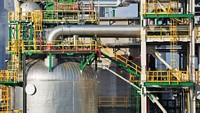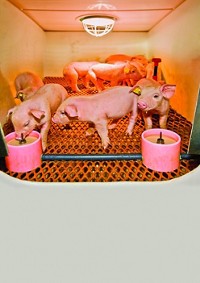Advertisement
Grab your lab coat. Let's get started
Welcome!
Welcome!
Create an account below to get 6 C&EN articles per month, receive newsletters and more - all free.
It seems this is your first time logging in online. Please enter the following information to continue.
As an ACS member you automatically get access to this site. All we need is few more details to create your reading experience.
Not you? Sign in with a different account.
Not you? Sign in with a different account.
ERROR 1
ERROR 1
ERROR 2
ERROR 2
ERROR 2
ERROR 2
ERROR 2
Password and Confirm password must match.
If you have an ACS member number, please enter it here so we can link this account to your membership. (optional)
ERROR 2
ACS values your privacy. By submitting your information, you are gaining access to C&EN and subscribing to our weekly newsletter. We use the information you provide to make your reading experience better, and we will never sell your data to third party members.
Business
DSM Continues Portfolio Shift
Life Sciences: Dutch firm strikes deals in nutrition, antibiotics
by Michael McCoy
January 3, 2011
| A version of this story appeared in
Volume 89, Issue 1

The Dutch specialty chemicals company DSM closed out 2010 with two transactions intended to sharpen its focus on the life and materials sciences. It struck a deal to acquire U.S.-based Martek Biosciences for $1.1 billion, and it agreed to sell half of its anti-infectives business to China’s Sinochem for about $275 million.
The announcements came just days after DSM signed an agreement to sell its elastomers business to Lanxess. That sale, for more than $400 million, completed a four-year program to exit commodity businesses in fertilizers, melamine, citric acid, and benzoic acid. Total proceeds will come in at about $1.6 billion, DSM says.
Columbia, Md.-based Martek produces polyunsaturated fatty acids—a family of nutritional supplements—via algal fermentation. Its flagship product, docosahexaenoic acid, is added to almost all major brands of infant formula, as well as to foods, beverages, and dietary supplements. Martek’s fiscal 2010 sales were $450 million, up 30% over the previous year.
In addition to fast growth, Martek brings an algal technology platform that complements DSM’s own expertise in yeast fermentation, enzymes, and advanced chemistry. In fact, Martek’s number two product, the fatty acid arachidonic acid, is manufactured under contract by DSM via fungal fermentation.
Formation of an Asian anti-infectives joint venture, meanwhile, is a long-held goal of the Dutch company, which is one of just a few remaining Western producers of penicillin. DSM had held sporadic talks with North China Pharmaceutical Group about such a venture since 2004 but finally abandoned them in 2009.
Under the new deal, Sinochem becomes half owner of a business with $425 million in annual sales and about 2,000 employees. In a presentation to investors, DSM executives said they believe Sinochem’s position as one of China’s biggest state-owned enterprises will help expand the business to more than $750 million in sales by 2015.
“Anti-infectives has been a problem child for years,” observed Andreas Heine, a stock analyst with UniCredit, in a note to investors. “The agreed move with Sinochem seems to be a very good solution.”




Join the conversation
Contact the reporter
Submit a Letter to the Editor for publication
Engage with us on Twitter